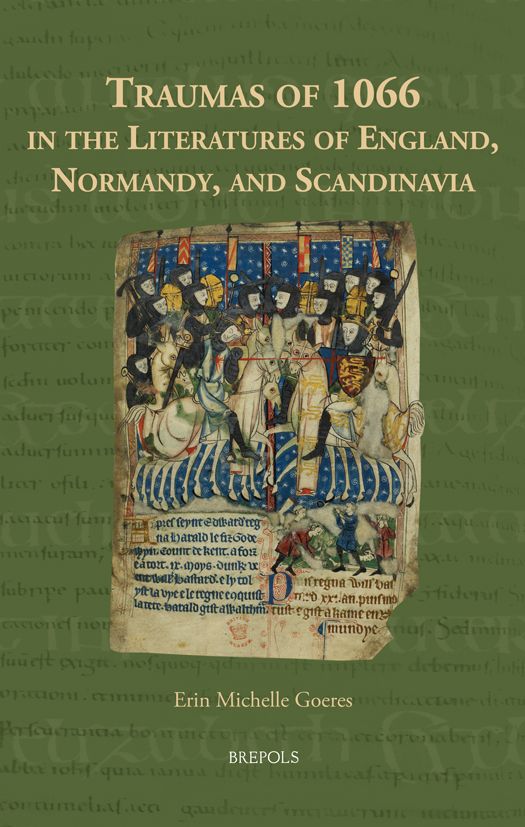
Erin Michelle Goeres, Traumas of 1066 in the Literatures of England, Normandy, and Scandinavia
A transcultural exploration of how the traumatic events of 1066 were recorded, memorialised, and mythologised in the literatures of northern Europe.
1066 is one of the most well-known dates in English history: but how far do we understand the mental and emotional lives of those who experienced it? In just over a month, England was rocked by two separate invasions, multiple pitched battles, and the deaths of thousands. The repercussions of these traumatic events would echo through the history and literature of northern Europe for centuries to come.
Drawing on studies of trauma and cultural memory, this book examines the cultural repercussions of the year 1066 in medieval England, Normandy, and Scandinavia. It explores how writers in all three regions celebrated their common heritage and mourned the wars that brought them into conflict. Bringing together texts from an array of languages, genres, and cultural traditions, this study examines the strategies medieval authors employed to work through the traumas of 1066, narrating its events and experiences in different forms. It explores the ways in which history and memory interacted through multiple generations of writers and readers, and reveals how the field of trauma studies can help us better understand the mental and emotional lives of medieval people.
—
Table of Contents
Introduction. Learning to Hear
Chapter 1. Histories Entangled
Chapter 2. Dreaming of England
Chapter 3. Fratricide in the North
Chapter 4. Enigmas of Survival
Conclusion. Departures
Bibliography
Index
—
Erin Michelle Goeres is Associate Professor of Old Norse Language and Literature at University College London (UCL). She has published on topics including Old Norse-Icelandic poetry, medieval historiography, and Arthurian literature. Her first book, Poetics of Commemoration: Skaldic Verse and Social Memory, c. 890-1070, was published by Oxford University Press in 2015. She has appeared on BBC Radio 4’s ‘In Our Time’ and ‘The Long View’ to discuss medieval history and culture.